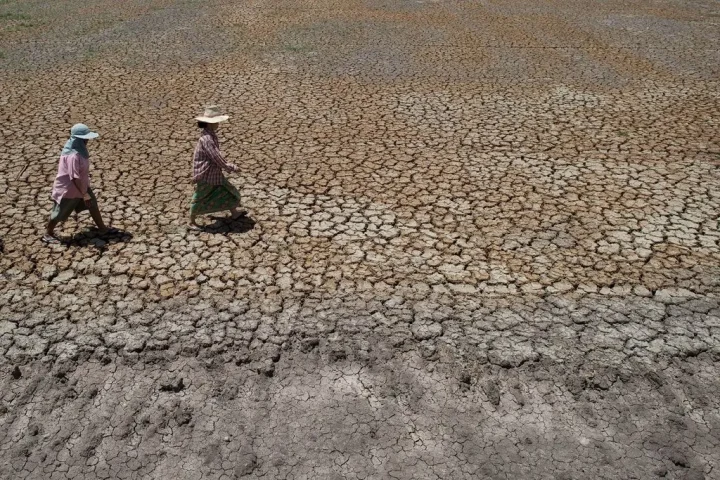Heatwave file photo of a runner cooling down with water in Skopje, North Macedonia on July 12, 2023. Photo credit: REUTERS/Ognen Teofilovski/
The European Union’s Copernicus Climate Change Service (C3S) says 2024 was the warmest year on record, with global temperatures surpassing the 1.5°C threshold for the first time.
In its report released on Friday, C3S said the global average temperature in 2024 was 15.10°C, which is 0.72°C above the 1991–2020 average and 0.12°C higher than the previous record set in 2023.
The findings highlight an alarming trend, with 2015 to 2024 ranking among the 10 warmest years ever recorded.
C3S noted that global temperatures exceeded the 1.5°C level above pre-industrial averages for 11 months of the year. July 22, 2024, marked a record high average global temperature of 17.16°C.
Advertisement
While most regions experienced unprecedented warmth, exceptions included Antarctica, Australasia, and parts of the North Atlantic and Pacific Oceans.
Sea surface temperatures (SST) also reached record highs, with the annual average over extra-polar oceans hitting 20.87°C, 0.51°C above the 1991–2020 average.
C3S added that the year saw the conclusion of the El Niño event that began in 2023, transitioning towards more neutral or La Niña conditions.
Advertisement
PARIS AGREEMENT GOALS UNDER THREAT
The report raises concerns about the world’s ability to meet the goals of the Paris Agreement, a landmark 2015 treaty signed by 196 countries to limit global temperature increases to 1.5°C above pre-industrial levels.
However, lack of global cooperation, good governance, increased consumption of resources, lack of finance, and population growth is gradually stifling the goal.
Carlo Buontempo, the director C3C said only swift and decisive action can alter the trajectory of our climate’s future.
Advertisement
“All of the internationally produced global temperature datasets show that 2024 was the hottest year since records began in 1850,” Buontempo said.
“Humanity is in charge of its own destiny but how we respond to the climate challenge should be based on evidence.”
Samantha Burgess, the strategic lead for climate at European Centre for Medium-Range Weather Forecasts (ECMWF), said the world is the world is gradually “teetering on the edge of passing the 1.5ºC level defined in the Paris Agreement, causing misery for millions of people”.
WHAT DOES THIS MEAN FOR AFRICA?
Advertisement
Africa, one of the most climate-vulnerable regions, has felt the severe effects of rising temperatures, with extreme weather events compounding poverty and resource conflicts.
Ali Mohammed, chair of the African Group of Negotiators (AGN), said the data signals worsening conditions for the continent.
Advertisement
Mohammed criticised developed countries for failing to meet their Paris Agreement obligations, urging global leaders to prioritise net-zero emissions and invest in renewable energy for Africa.
“For Africa, these statistics translate into poverty and livelihood stagnation, and an escalation of climate-induced conflicts over dwindling resources,”Mohammed said.
Advertisement
“All stakeholders must recognise Africa’s unique opportunity to decarbonise the world by investing in renewable energy infrastructure and building capacity for resilience.
“2024’s unprecedented heat is a stark warning. Without swift andtransformative action, the world risks breaching the limits of climate resilience.
Advertisement
“Africa’s voice is clear — the time for pledges is over— this is a moment for bold, decisive action.”
Add a comment












